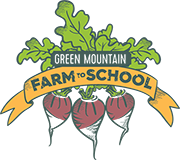Green Mountain Farm to School organized a field trip for Irasburg students to the Nulhegan Education and Cultural Center in Holland on Wednesday, March 30. Students learned about the Abenaki culture and were able to participate in drumming, learn some words in Abenaki, dance, and view and hold cultural items.

Participants also learned about how native people lived, what clothing they wore, what they did in their pastimes, what they ate, how they learned, and how they sheltered.
Miss Lucy Neel, Director and founding member of the center is of Abenaki descent. She said one purpose of the center is to provide educational opportunities and a chance to participate in native activities. The center also serves as a food shelf for native and non-native people, Neel said.
When Neel learned that the Holland School was closing, she decided to take the opportunity to create the center. Neel wants people to know that the Abenaki people were here in Vermont and the surrounding areas long before the European people arrived, and the Aberanki people are still here today.
Neel commented that she was very happy to collaborate with GMFTS and was delighted that Emma, an Americorps member with GMFTS, has been working with the kids in learning about the Abenaki culture.
GMFTS collaborates with local schools and organizations to provide programs and regular learning opportunities for students. Initiatives include land acknowledgment, which is acknowledging the land first and showing respect and honoring the Indigenous Peoples of the land on which we live and work.
 “The field trip to the Abenaki Cultural Center was such a great experience for my students, many of whom had never been on a field trip before, said third-grade teacher Andrea Duncan with Irasburg Village School. “They were able to have hands-on experience that directly connected to our classroom learning. Culture is part of the third-grade curriculum so learning about a culture so close to home just made sense,” she added.
“The field trip to the Abenaki Cultural Center was such a great experience for my students, many of whom had never been on a field trip before, said third-grade teacher Andrea Duncan with Irasburg Village School. “They were able to have hands-on experience that directly connected to our classroom learning. Culture is part of the third-grade curriculum so learning about a culture so close to home just made sense,” she added.
GMFTS, a non-profit organization in Newport has a mission to make a positive impact on children’s futures. GMFTS provides programs, resources, and networking opportunities to schools in the Northeast Kingdom, supporting their efforts to build school gardens, source local food, and provide nutrition and agriculture education.
“We work with schools to develop a sustainable program that builds staff capacity to embed Farm to School activities across the classroom, cafeteria, and community. As every school is different, with distinct priorities and diverse community resources, we provide different levels of service depending on a school’s readiness for Farm-to-School with the goal of bringing all schools to a thriving program level. Follow us on social media.





